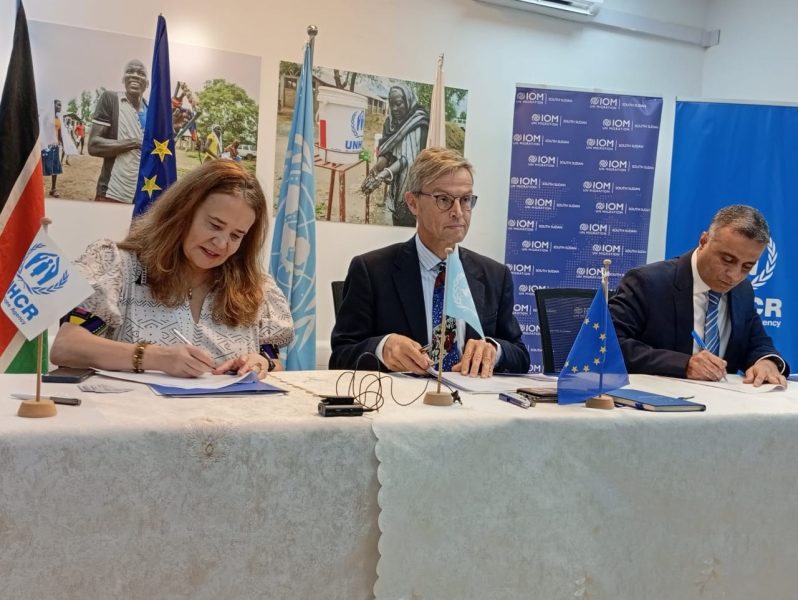
The European Union has pledged €11 million to support long-term recovery and resilience efforts in South Sudan, addressing the displacement crisis sparked by ongoing conflict in neighboring Sudan.
The funding, channeled through the UN Refugee Agency (UNHCR) and the International Organization for Migration (IOM), is set to benefit around 40,000 people, including Sudanese refugees, South Sudanese returnees, internally displaced persons, and host communities.
Since fighting erupted in Sudan in April 2023, more than 1.1 million people have fled into South Sudan, placing immense strain on already fragile infrastructure and basic services in areas like Juba and Upper Nile State.
The new initiative, “Strengthening Community Adaptability and Resilience for Displaced and Host Populations in South Sudan,” aims to go beyond immediate humanitarian relief by focusing on sustainable, long-term solutions.
These include expanding economic opportunities, improving healthcare and education access, and fostering social cohesion, especially for youth and women.
During the signing ceremony, Lothar Jaschke, Acting Head of the EU Delegation in South Sudan, expressed the importance of inclusive support.
“I am proud to launch this initiative with UNHCR and IOM,” he said. “The Sudan crisis has worsened displacement in cities like Juba and Malakal. Supporting both displaced and host communities without distinction is essential for strengthening social cohesion.”
UNHCR Representative in South Sudan, Marie-Helene Verney, underscored the urgency of the initiative, highlighting the intended critical impact of the support,
“South Sudan is at a crossroads, facing mounting pressure from continued arrivals while navigating its own deepening humanitarian crisis,” she said. “This support from the EU is vital for fostering inclusion and resilience, offering a path to greater stability.”
Echoing this, IOM Chief of Mission Vijaya Souri highlighted the program’s strategic outlook. “This initiative reflects IOM’s commitment to moving beyond crisis response by investing in long-term recovery,” she said. “By aligning with national priorities and building on existing foundations, we aim to deliver sustainable, community-driven solutions.”
The project aligns with the UN Secretary-General’s Action Agenda on Internal Displacement and the Inter-Agency Standing Committee’s Framework on Durable Solutions. It builds on EU-supported initiatives launched in 2023 and is expected to run through 2026, with a strong emphasis on coordination with the South Sudanese government and local partners.
The EU, UNHCR, and IOM jointly described the initiative as a clear demonstration of their commitment to tackling displacement through inclusive, durable, and community-focused approaches.

